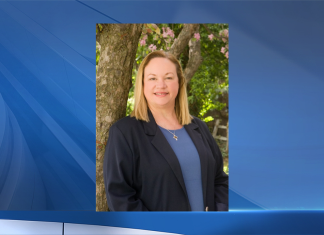Risking So Much, Just to Save the Filibuster
Two of the eight centrist Democratic senators who helped end the shutdown this week have now said that keeping the filibuster played a decisive role in their decision.
Sen. Angus King (I-ME), who caucuses with the Democrats, told the Portland Press-Herald that it was Trump touting his newfound enthusiasm for nuking the filibuster after the Democratic sweep in elections last week which pushed him over.
“Don’t forget that Donald Trump’s position on this wasn’t to negotiate, but to end it — entirely on their terms — by pressuring the Senate Republicans to abolish the filibuster, thus eliminating Democratic leverage on this — or anything else — altogether. And I know that this was not an idle threat or negotiating ploy; he meant it and a growing number in the Republican caucus agreed,” King said. “No filibuster and we’d be facing a nationwide abortion ban, voter suppression laws and, quite possibly, the elimination of the Affordable Care Act itself with no tool to stop it.”
Sen. Tim Kaine (D-VA) made a similar remark in an op-ed published this week in the New York Times.
“More likely, the chaos of continuing the shutdown would have led them to eliminate the Senate filibuster so they could pass a government funding bill with no Democratic votes, a dangerous consolidation of one-party rule,” Kaine wrote.
It’s an argument that avoids the broader picture: They gave up a fight that, per polling and this month’s election, they seemed to be winning. In exchange, they protected a procedural tool that would likely hobble future Democratic administrations’ agendas.
This all feeds into a broader question about democracy.
Democrats spent the final weeks of the 2024 election framing it as a contest over the core of our political system. After the first Trump term, January 6, the GOP’s radicalization against democracy and the principle of equality with the other side, that’s understandable. It’s true that abolishing the filibuster would clear the path for the Republican base to badger their senators into, willingly or not, passing the kinds of laws that King mentioned. But, as experts and online pedants alike will remind you, elections have consequences.
When you consider the kind of agenda that a future, pro-democracy and anti-corruption administration might have in mind, it’s very hard to imagine that passing with the current filibuster in place. Even more broadly than that, Democrats spent their growing leverage from the shutdown not on a present-day policy win, but on preserving a perpetual obstacle to the country governing itself.
— Josh Kovensky
Epstein, Epstein, Epstein
Relatedly but far more pruriently, thousands of files from Jeffery Epstein’s email account were released this week. You’ve already seen the headlines. But the way it happened was a funny instance of escalation: House Democrats released a small tranche of emails in which Epstein discussed Trump, including with influential Democratic Party-associated confidantes Kathy Ruemmler and Larry Summers.
House Republicans followed that up by dropping a batch of more than 20,000 emails into the public domain. There’s enough here to tarnish-by-association the reputations of figures across the American elite. Steve Bannon is there, as are Alan Dershowitz and Michael Woff.
But Ruemmler and Summers are particularly interesting, albeit for different reasons.
Ruemmler was President Obama’s White House counsel from 2011 to 2014. She was a candidate for attorney general after Eric Holder, and rose to that level of prestige along with a cadre of federal prosecutors who, under the Bush administration, staffed the Enron Task Force. That group gave rise to several extremely luminous legal careers: Andrew Weissmann, a Mueller investigation prosecutor, worked on the case, as did at least two DOJ criminal division chiefs.
All this is to contrast that prestige with the extremely grubby reality that the emails expose, at least as it pertains to Ruemmler. She comes off as more like one of Epstein’s buddies than anything else. At one point she complains to him about having to “observe all of the people” at a rest stop on the New Jersey turnpike who are “at least 100 pounds overweight,” prompting “a mild panic attack” before resolving to never eat “another bite of food for the rest of my life out of fear that I will end up like one of these people.” Elsewhere, Ruemmler dismisses a news story about the allegations against Epstein as a “novella of rehashed crap.” Like others, they track Trump’s rise, commiserate over his election and note the progress of the Mueller investigation.
Ruemmler, now chief legal officer at Goldman Sachs, has said that she regrets ever knowing Epstein. As the emails show, she knew the accusations he had faced. The exchanges occurred after he, in 2008, pled guilty to soliciting prostitution with a minor. Again, Ruemmler was someone who was seen, at the time of the messages, as a viable candidate for the country’s top law enforcement officer.
Summers cuts a different figure in the messages, seeking advice on relationships with the opposite sex from the disgraced financier.
In one March 2019 exchange, Summers describes a female acquaintance as having told him she was busy after he asked what she was “up to.”
“I said awfully coy u are,” Summers wrote in the message. “And then I said. Did u really rearrange the weekend we were going to be together because guy number 3 was coming.”
“I dint want to be in a gift giving competition while being the friend without benefits,” he added later.
Epstein replied that the unnamed woman was “smart. making you pay for past errors. ignore the daddy im going to go out with the motorcycle guy, you reacted well.. annoyed shows caring., no whining showed strentgh.”
Summers described his relationship with Epstein to the Harvard Crimson as “a major error judgment.”
As with Ruemmler, the point with Summers is less that it’s an error of judgment — these people are smart, sophisticated, and occupy immense positions of influence and public trust. It’s not plausible to treat the exchanges we’ve seen as an isolated mistake.
— Josh Kovensky
How Trump’s Redistricting Push Hit a Wall in Utah
This week, a Utah judge rejected a Republican-led congressional map in favor of a map put forward by the League of Women Voters and Mormon Women for Ethical Government that allowed for a Democratic district around Salt Lake City. The ruling represents a major setback for the Trump administration’s pressure campaign to get red states across the country to gerrymander their maps midcycle in an effort to sway the 2026 midterm elections.
Katharine Biele, president of the League of Women Voters of Utah, explained in an interview with TPM that Utah’s redistricting effort was met with “perhaps the most impressive grassroots anti-gerrymandering effort in the United States.”
Biele emphasized too, that unlike other redistricting efforts, the map that the League of Women Voters and Mormon Women for Ethical Government put forth isn’t and was never meant to be partisan. She acknowledged that the newly approved map is “not going to make Utah a democratic state,” a notion she described as “absurd.”
“This is a very Republican state, and it will remain a very Republican state. But it’s important to give people a chance to voice their opinion,” she said. “Our districting effort was not politically based. It was all about giving people the right to vote.”
In her ruling this week, Judge Dianna Gibson explained that the Republican maps did not abide by Proposition 4, a ballot amendment passed by Utah voters which puts forth nonpartisan redistricting requirements for the legislature. Republicans are currently trying to put forth a measure for next year to repeal Proposition 4. Biele described this effort as Republicans “working against their constituents.”
Though Republicans are planning to appeal Gibson’s ruling, Biele says she feels confident that the appeal will not be successful.
“I’m pretty sure that the Supreme Court of Utah will deny the appeal because they’ve already, they’ve already ruled in our favor,” she said. “Our Republican legislature is absolutely convinced they are the only people who know anything.”
— Khaya Himmelman
In Case You Missed It
Today’s big stories:
How the Trump Admin Has Sown Fear Among Progressive Nonprofits
JD Vance Received a Dire Warning About the Groyper Takeover of the GOP From a Strange Source
Dispatch from Court: Pam Bondi Takes a Beating in Court Over Lindsey Halligan’s Dubious Appointment
Morning Memo: The Corrupt Roots of America’s Elite Run Deep
TPM 25: We Tried to Get Big Tech to Pay for Wrecking Journalism. It Didn’t Work Out.
Backchannel: Bringing Guns to Gun Fights: Making Sense of the National Gerrymandering Battle
Yesterday’s Most Read Story
Big Coverup Exposed in Bogus Mortgage Fraud Cases
What We Are Reading
Will People Trust Voting by Phone? Alaska Is Going to Find Out. — Nick Corasaniti, The New York Times
In Matt Gaetz Scandal, Circumstances Left Teen Vulnerable to Exploitation — Michael S. Schmidt, The New York Times
Blurred lines: how Michael Wolff aspired to be part of elite circles he wrote about — Ed Pilkington, The Guardian
‘No! Not Larry Summers!’ Wails Devastated Nation — The Onion







